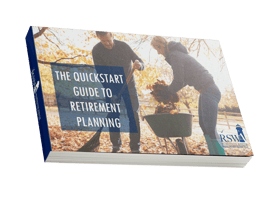Worker productivity surged in 2023. With the unemployment rate low for a long time, and labor costs rising, it has forced companies to do more with less. This has huge implications for the economy. If companies can do more with less, prices on goods can remain in check even as employees earn more and shareholders do as well. With consumers pushing back on rising prices, one of the only alternatives that companies have is to increase productivity per worker. One way this is accomplished is by capital investments in new technologies or machinery such as self-checkout lines in supermarkets. Other ways to increase productivity are increasing worker training and adding skills or even innovation and improvements in work processes. The confluence of worker shortages and access to newer technologies may just keep the productivity increases going - which would be good for the economy. Axios
China’s Real Estate Bust: China’s property sector has been crushed in the last few years. Looking back, it was easy to see it was a government-backed, debt-fueled boom bound to fail. It feels similar to the U.S. housing bubble 20 years ago – only it’s much worse. The tales of crazy projects are hard to believe. But with real estate comprising 25% of the Chinese economy, it could be years before the total economy recovers. WSJ
How China’s Real Estate Bust Affects the Rest of the World: With China’s economy in the doldrums and demand low, it is trying to export its way out of trouble. About 30 years ago, China flooded the world with cheap goods and cheap labor. This ended up shocking the industrial sector in many developed countries, and many of those industries never recovered, and jobs and skills were permanently lost. This time around, it looks like it won’t just be traditional manufactured goods like steel but future technologies as well from solar panels and batteries to electric cars. Many are referring this to as China Shock 2.0. Also, this time around, China’s economy is not booming, therefore there is little to get in return for Western companies. Experts are predicting more trade barriers and restrictions for exported Chinese goods. This will be an ongoing challenge for policymakers and markets for the foreseeable future. WSJ – Another China Shock WSJ – China Shock 2.0 Will Be Different
Financial Planning/Investment Strategy Corner:
Employee Stock Purchase Plans: Many publicly traded companies offer employees the opportunity to purchase shares in their company at discounted prices. The Employee Stock Purchase Plans (ESPP) generally work by letting employees purchase shares after-tax during a six-month offering period. Some plans are very generous and allow employees to purchase shares at the lower stock price between the offering period’s beginning price and closing price – and then add a 15% discount on the purchase price. That could be a big win for an employee investor, and some companies allow the employee to immediately sell which could lock in a nice gain of at least 15%. However, there are risks associated with ESPPs. One obvious one is you are already receiving your income from the company and by participating in an ESPP you are creating even more exposure by investing in the stock. In a particularly bad scenario, you could lose your job and your money invested in the stock if the company has a bad stretch. Another drawback is that participating in an ESPP will cost you after-tax income which could hurt your cash flow and challenge your ability to fund bills and other needs. Still, ESPPs can be a great investment opportunity for employees under the right circumstances and with the right company. Please speak to your financial advisor if you would like to learn more about ESPPs. CNBC
Quick Hits:
- Roman wine tasted much better than previously thought: Phys.org
- Get your spring swing ready – how to hit a golf ball farther: WSJ
- There are tick medications for dogs, so why not for people? NYT
- The story of the person who took down N. Korea’s internet by himself: Wired
- According to some top athletes, oatmeal is the best performance breakfast – here are some of their recipes: Get Pocket
- Thinking of getting a walking pad for your desk or TV room? Here are some reviews: VeryWellFit
Networking for Life: Exclusive retreats for billionaires and celebrities allowing them to network, share ideas, and discuss potential collaborations are on the rise. But it doesn't mean the rest of us can’t benefit from networking. Some business coaches say your network equals your net worth. The benefits for someone’s career are obvious such as finding new jobs, a mentor, and sharing best practices. But networking can also help for non-business reasons. It can connect you to those who share similar hobbies and interests, and you can also learn more about what is going on with your community issues or upcoming events. One area often overlooked is that networking can provide great inspiration. When you meet others who are doing interesting, fun, and productive things, it can inspire you to think creatively about your activities. So go out and do a little networking for fun – you might even make some new friends! Curious Desire – Benefits of Networking for Human Life LinkedIn – Networking 101 WSJ - The Secret Retreats That Have CEOs, VIPs and Billionaires Jockeying for Invites
Quote: “You can have everything in life you want if you will just help enough other people get what they want.” Zig Ziglar
Thank you for reading RSWA Financial Advisor Insights! We welcome feedback, and please forward this to a friend! Be well, take care, and stay safe!
